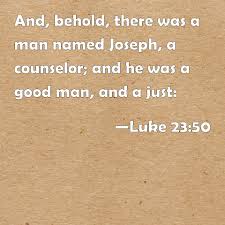 “Organized religion” could be a church gathering with certain basic rules
“Organized religion” could be a church gathering with certain basic rules
Sometimes believers try to justify their separation from other Christians, as well as church meetings, with the idea that Jesus was against organized religion. The Bible says no such thing.
During the time of the apostles Christians often met in their homes, which makes sense since they could not always take over Jewish synagogues and start having assemblies there (but sometimes they did). The climate is usually very warm in the Middle East and this means that people often could gather outside, like on top of their buildings to make room for more people. Where I live (Sweden) it is a totally different matter, and it is a huge advantage if Christians have access to a large building in order to assemble several families who can worship together in a practical way. Hence, the idea of a large building with the very suitable name “church” – since the building is supposed to be a place where Christian believers assemble. ἐκκλησία (ekklesia, Strong’s 1577) is often translated church and could mean an ”assembly of believers”. (An assembly of Christian believers or a church building are not necessarily Babylon ….)
Naturally a certain amount of rules must be implemented in order for everyone to have a pleasant time together in their worship. The Bible (particularly the book of Acts), gives us some details how such meetings could work out and why they are even needed. A church meeting (an assembly with Christians) provides a chance for everyone to hear sermons (from a pastor), to sing worship songs together, to hear prophesies, to get healed, to edify each other, etc. These things must logically be made in a certain order to avoid total chaos.
It is true that Christ is in our midst if 2-3 persons gather in his name, but 1) let us at least do that, and 2) this does not diminish the importance of having Christian assemblies with even more believers.
Matt. 18:20 For where two or three are gathered together in my name, there am I in the midst of them
1 Cor. 3:9 For we are labourers together with God: ye are God’s husbandry, ye are God’s building.
Some Bible verses about gathering with Christians under structured conditions
It may not be a salvational matter to assemble with other Christians (and sometimes it is not even possible or preferable for various reasons), but it can be very edifying both for you and others. Maybe you believe that you know best anyway so why let some pastors speak and hold sermons you might disagree with? In that case, maybe you can enlighten fellow lost believers (like after the sermon in order to not disturb the peace). Or perhaps you are the one who needs to be enlightened after all. If you are only willing to attend a church meeting where you agree with the pastor about everything, then you will have to continue spending your Sundays alone. A church meeting is not solely there due to the sermons, but in order to have fellowship with other Christians, to sing worship songs together, etc.
Hebrews 10:24-25 And let us consider one another to provoke unto love and to good works: Not forsaking the assembling of ourselves together, as the manner of some is; but exhorting one another: and so much the more, as ye see the day approaching
Below we get advice for church meetings:
Ja. 2:2 For if there come unto your assembly a man with a gold ring, in goodly apparel, and there come in also a poor man in vile raiment;3 And ye have respect to him that weareth the gay clothing, and say unto him, Sit thou here in a good place; and say to the poor, Stand thou there, or sit here under my footstool
Ja. 5:13 Is any among you afflicted? let him pray. Is any merry? let him sing psalms.14 Is any sick among you? let him call for the elders of the church; and let them pray over him, anointing him with oil in the name of the Lord:15 And the prayer of faith shall save the sick, and the Lord shall raise him up; and if he have committed sins, they shall be forgiven him.16 Confess your faults one to another, and pray one for another, that ye may be healed. The effectual fervent prayer of a righteous man availeth much.
The “laying on of hands” means to officially confirm a qualified person as an elder, which is an important task done by another elder. This is indeed “organized religion”, and if everyone had obeyed Paul’s advice in selecting elders all would be well. Unfortunately Paul himself knew that there would be believers who would deviate from his teaching rather soon.
Titus 1:4 To Titus, mine own son after the common faith: Grace, mercy, and peace, from God the Father and the Lord Jesus Christ our Saviour.5 For this cause left I thee in Crete, that thou shouldest set in order the things that are wanting, and ordain elders in every city, as I had appointed thee:—7 For a bishop must be blameless, as the steward of God; not selfwilled, not soon angry, not given to wine, no striker, not given to filthy lucre;—9 Holding fast the faithful word as he hath been taught, that he may be able by sound doctrine both to exhort and to convince the gainsayers.
1 Tim. 4:13 Till I come, give attendance to reading, to exhortation, to doctrine. 14 Neglect not the gift that is in thee, which was given thee by prophecy, with the laying on of the hands of the presbytery.
Below we can read about “organized religion” in the book of Acts.
Acts 2:41Then they that gladly received his word were baptized: and the same day there were added unto them about three thousand souls. 42And they continued stedfastly in the apostles’ doctrine and FELLOWSHIP, and in breaking of bread, and in prayers. 43And fear came upon every soul: and many wonders and signs were done by the apostles. 44And all that believed WERE TOGETHER, and had all things COMMON; 45And sold their possessions and goods, and parted them to all men, as every man had need. 46And they, continuing daily with one accord in the TEMPLE, and breaking bread from house to house, did eat their meat with gladness and singleness of heart, 47Praising God, and having favour with all the people. And the Lord added to the church daily such as should be saved.
We can see above that Christians had fellowship with each other in the same place. Notice that 3000 people were saved and added to them the day in question. Baptism and breaking bread with others could not be possible unless Christians assembled together. Neither would signs and wonders have a large impact on people unless they were seen by others. Christians did not abandon the temple, even though they could of course assemble also in their homes.
When Paul was out travelling, he knew there were Christian assemblies that he could meet up with. We can see below that believers met together during a certain day and time, were taught in the temple and in homes, we can read about structured purifications and offerings,
Acts 3:1 Now Peter and John went up together into the TEMPLE at the hour of prayer, being the ninth hour.
Acts 4:1 And as they spake unto the people, the priests, and the captain of the TEMPLE, and the Sadducees, came upon them, 2Being grieved that they taught the people, and preached through Jesus the resurrection from the dead.
Acts 4:19 But the angel of the Lord by night opened the prison doors, and brought them forth, and said, 20Go, stand and speak in the TEMPLE to the people all the words of this life.
Acts 4:42 And daily in the TEMPLE, and in every house, they ceased not to teach and preach Jesus Christ.
Acts 9:19 And when he had received meat, he was strengthened. Then was Saul certain days with the disciples which were at Damascus. 20And straightway he preached Christ in the SYNAGOGES, that he is the Son of God.— 26And when Saul was come to Jerusalem, he assayed to join himself to the disciples: but they were all afraid of him, and believed not that he was a disciple.
Acts 13:4 So they, being sent forth by the Holy Ghost, departed unto Seleucia; and from thence they sailed to Cyprus. 5And when they were at Salamis, they preached the word of God in the SYNAGOGES of the Jews: and they had also JOHN TO THEIR MINISTER.-–14But when they departed from Perga, they came to Antioch in Pisidia, and went into the SYNAGOGUE on the sabbath day, and sat down. 15And after the reading of the law and the prophets the RULERS of the synagogue sent unto them, saying, Ye men and BRETHREN, if ye have any word of exhortation for the people, say on.––
Acts 13:42 And when the Jews were gone out of the SYNAGOGUE, the Gentiles besought that these words might be preached to them the next sabbath. 43Now when the congregation was broken up, many of the Jews and religious proselytes followed Paul and Barnabas: who, speaking to them, persuaded them to continue in the grace of God. 44And the next sabbath day came almost the whole city together to hear the word of God.
Acts 14:1 And it came to pass in Iconium that together they both went into the SYNAGOGUE of the Jews, and so spoke that a great multitude of both the Jews and also of the GREEKS believed.
Acts 18:4 And he reasoned in the SYNAGOGUE every sabbath, and persuaded the Jews and the GREEKS.— 7And he departed thence, and entered into a certain man’s house, named Justus, one that worshipped God,whose house joined hard to the synagogue.8And Crispus, the chief ruler of the synagogue, believed on the Lord with all his house; and many of the Corinthians hearing believed, and were baptized.
Acts 17:1 Now when they had passed through Amphipolis and Apollonia, they came to Thessalonica, where was a SYNAGOGUE of the Jews:2And Paul, as his manner was, went in unto them, and three sabbath days reasoned with them out of the scriptures,—10And the brethren immediately sent away Paul and Silas by night unto Berea: who coming thither went into the synagogue of the Jews.—-17Therefore disputed he in the synagogue with the Jews, and with the devout persons, and in the market daily with them that met with him.
Acts 18:19 And he came to Ephesus, and left them there: but he himself entered into the SYNAGOGUE, and reasoned with the Jews. —22And when he had landed at Caesarea, and gone up, and saluted the church, he went down to Antioch.— 26And he began to speak boldly in the SYNAGOGUE: whom when Aquila and Priscilla had heard, they took him unto them, and expounded unto him the way of God more perfectly.27And when he was disposed to pass into Achaia, the brethren wrote, exhorting the disciples to receive him: who, when he was come, helped them much which had believed through grace: 28For he mightily convinced the Jews, and that publicly, shewing by the scriptures that Jesus was Christ.
Acts 19:1 And it came to pass, that, while Apollos was at Corinth, Paul having passed through the upper coasts came to Ephesus: and finding certain disciples,—8And he went into the SYNAGOGUE, and spake boldly for the space of three months, disputing and persuading the things concerning the kingdom of God. 9But when divers were hardened, and believed not, but spake evil of that way before the multitude, he departed from them, and separated the disciples, disputing daily in the school of one Tyrannus. 10And this continued by the space of two years; so that all they which dwelt in Asia heard the word of the Lord Jesus, both Jews and Greeks.—
Acts 21:26 Then Paul took the men, and the next day purifying himself with them entered into the TEMPLE, to signify the accomplishment of the days of purification, until that an offering should be offered for every one of them. 27And when the seven days were almost ended, the Jews which were of Asia, when they saw him in the TEMPLE, stirred up all the people, and laid hands on him,
Acts 22:17 And it came to pass, that, when I was come again to Jerusalem, even while I prayed in the TEMPLE, I was in a trance;18And saw him saying unto me, Make haste, and get thee quickly out of Jerusalem: for they will not receive thy testimony concerning me. 19And I said, Lord, they know that I imprisoned and beat in every SYNAGOGUE them that believed on thee:
Acts 24:11 Because that thou mayest understand, that there are yet but twelve days since I went up to Jerusalem for to worship. 12And they neither found me in the temple disputing with any man, neither raising up the people, neither in the synagogues, nor in the city:—18Whereupon certain Jews from Asia found me purified in the TEMPLE, neither with multitude, nor with tumult.
 Church (ekklesia) is sometimes used in CONTRAST to a group of individual believers!
Church (ekklesia) is sometimes used in CONTRAST to a group of individual believers!
1 Tim. 5:3 Honour widows that are widows indeed. 4But if any widow have children or nephews, let them learn first to shew piety at home, and to requite their parents: for that is good and acceptable before God. — 9Let not a widow be taken into the number under threescore years old, having been the wife of one man. 10Well reported of for good works; if she have brought up children, if she have lodged strangers, if she have washed the saints’ feet, if she have relieved the afflicted, if she have diligently followed every good work. 11But the younger widows refuse: for when they have begun to wax wanton against Christ, they will marry;—16If any man or woman that believeth have widows, let them relieve them, and let not the church (ekklesia) be charged; that it may relieve them that are widows indeed. 17Let the ELDERS (presbyteroi) that rule well be counted worthy of DOUBLE HONOUR, especially they who labour in the word and doctrine.—19Against an elder receive not an accusation, but before two or three witnesses. 20Them that sin rebuke before all, that others also may fear.
Above, Paul gives instructions to the assembly of christians (the church) concerning the treatment of widows, and he advised them to preferably take care of their own family members (like widows) rather than having the church providing for them. In that way the church could focus on those with the most urgent needs. Apparently taking care of widows was one of many functions that the church had during this time. Paul also provided regulations concerning treatments of church elders, again indicating that christian meetings were “organized”.
3 John 1:6 Which have borne witness of thy charity before the church: whom if thou bring forward on their journey after a godly sort, thou shalt do well: — 9I wrote unto the church: but Diotrephes, who loveth to have the preeminence among them, receiveth us not. 10Wherefore, if I come, I will remember his deeds which he doeth, prating against us with malicious words: and not content therewith, neither doth he himself receive the brethren, and forbiddeth them that would, and casteth them out of the church.
The man Diotrephes refused to receive the brethren and he even cast them out of the CHURCH. So the true brethren are mentioned in contrast with the Church. The wicked person (in the church) cast them out of the church.
Acts 15:4 And when they were come to Jerusalem, they were received of the church (ekklesian), and of the apostles and elders, and they declared all things that God had done with them.—
If we can never say ”I’m going to church” because we as christians are always the church wherever we go, then neither does the above verse make any sense. Here we can read that Paul, Barnabas etc were ”received” by the church. It is better to receive godly men into church, instead of casting them out as Diotrephes did.
1 Cor. 11:1 Be ye followers of me, even as I also am of Christ.2Now I praise you, brethren,that ye remember me in all things, and keep the ordinances, as I delivered them to you. —4Every man praying or prophesying, having his head covered, dishonoureth his head.—16But if any man seem to be contentious, WE have no such custom, NEITHER the churches of God. 17Now in this that I declare unto you I praise you not, that ye come together not for the better, but for the worse. 18For first of all, when ye come together in the church, I hear that there be divisions among you; and I partly believe it. 19For there must be also heresies among you, that they which are approved may be made manifestamong you. 20When ye come together therefore into one place, this is not to eat the Lord’s supper. 21For in eating every one taketh before other his own supper: and one is hungry, and another is drunken. 22What? have ye not houses to eat and to drink in?or despise ye the church of God, and shame them that have not? what shall I say to you? shall I praise you in this? I praise you not.—30For this cause many are weak and sickly among you, and many sleep.—33Wherefore, my brethren, when ye come together to eat, tarry one for another. 34And if any man hunger, let him eat at home; that ye come not together unto condemnation. And the rest will I set in order when I come.
Above Paul contrasts (differentiates) ”we” with ”the church”. He is also talking about ”when ye come together in the Church”, which sounds like a physical place. Paul takes for granted that we are going away when we ”come together in the church” because he complains about people who take the chance to eat a lot of food while being in the church. Paul asks ”have ye not houses to eat and to drink in?” and ”if any man hunger, let him eat AT HOME”.
1 Cor. 14:33 For God is not the author of confusion, but of peace, as in all churches of the saints. 34Let your women keep silence in the churches: for it is not permitted unto them to speak; but they are commanded to be under obedience as also saith the law. 35And if they will learn any thing, let them ask their husbands AT HOME: for it is a shame for women to speak in the church.
Paul says above women should be silent in a teaching situation in church (not when it comes to singing, making prophesies, translating tongues, etc) and in this instance he is speaking of a certain place (away from home) and not a metaphor for believing people because he then gives permission for them to speak at home.
1 Cor.16:2 Upon the first day of the week let every one of you lay by him in store, as God hath prospered him, that there be no gatherings when I come.— 15I beseech you, brethren, (ye know the house of Stephanas, that it is the firstfruits of Achaia, and that they have addicted themselves to the ministry of the saints,) 16That ye submit yourselves unto such, and to every one that helpeth with us, and laboureth. 17I am glad of the coming of Stephanas and Fortunatus and Achaicus: for that which was lacking on your part they have supplied. 18For they have refreshed my spirit and yours: therefore acknowledge ye them that are such.19The churches of Asia salute you. Aquila and Priscilla salute you much in the Lord, with the church that is in their house.
2 Cor 8:4 Praying us with much intreaty that we would receive the gift, and take upon us the fellowship of the ministering to the saints.— 19And not that only, but who was also chosen of the churches to travel with us with this grace, which is administered by us to the glory of the same Lord, and declaration of your ready mind:—
We are supposed to be the body of Christ, which means many members with many gifts and talents. God has set some in the church (the body of Christian members) to be apostles, prophets, teachers, etc. Paul speaks about the importance to use the spiritual gifts in a certain order – in an organized way.
1 Cor. 12:12 For as the body is one, and hath many members, and all the members of that one body, being many, are one body: so also is Christ.— 28 And God hath set some in the church, first apostles, secondarily prophets, thirdly teachers, after that miracles, then gifts of healings, helps, governments, diversities of tongues.29 Are all apostles? are all prophets? are all teachers? are all workers of miracles?30 Have all the gifts of healing? do all speak with tongues? do all interpret?31 But covet earnestly the best gifts: and yet shew I unto you a more excellent way.
1 Cor. 14:1 Follow after charity, and desire spiritual gifts, but rather that ye may prophesy.2 For he that speaketh in an unknown tongue speaketh not unto men, but unto God: for no man understandeth him; howbeit in the spirit he speaketh mysteries.3 But he that prophesieth speaketh unto men to edification, and exhortation, and comfort.4 He that speaketh in an unknown tongue edifieth himself; but he that prophesieth edifieth the church.5 I would that ye all spake with tongues but rather that ye prophesied: for greater is he that prophesieth than he that speaketh with tongues, except he interpret, that the church may receive edifying.— 9 So likewise ye, except ye utter by the tongue words easy to be understood, how shall it be known what is spoken? for ye shall speak into the air.— 11 Therefore if I know not the meaning of the voice, I shall be unto him that speaketh a barbarian, and he that speaketh shall be a barbarian unto me.12 Even so ye, forasmuch as ye are zealous of spiritual gifts, seek that ye may excel to the edifying of the church.13 Wherefore let him that speaketh in an unknown tongue pray that he may interpret. —16 Else when thou shalt bless with the spirit, how shall he that occupieth the room of the unlearned say Amen at thy giving of thanks, seeing he understandeth not what thou sayest?17 For thou verily givest thanks well, but the other is not edified.18 I thank my God, I speak with tongues more than ye all:19 Yet in the church I had rather speak five words with my understanding, that by my voice I might teach others also, than ten thousand words in an unknown tongue.— 23 If therefore the whole church be come together into one place, and all speak with tongues, and there come in those that are unlearned, or unbelievers, will they not say that ye are mad?24 But if all prophesy, and there come in one that believeth not, or one unlearned, he is convinced of all, he is judged of all:25 And thus are the secrets of his heart made manifest; and so falling down on his face he will worship God, and report that God is in you of a truth.26 How is it then, brethren? when ye come together, every one of you hath a psalm, hath a doctrine, hath a tongue, hath a revelation, hath an interpretation. Let all things be done unto edifying.27 If any man speak in an unknown tongue, let it be by two, or at the most by three, and that by course; and let one interpret.28 But if there be no interpreter, let him keep silence in the church; and let him speak to himself, and to God.29 Let the prophets speak two or three, and let the other judge.30 If any thing be revealed to another that sitteth by, let the first hold his peace.31 For ye may all prophesy one by one, that all may learn, and all may be comforted.32 And the spirits of the prophets are subject to the prophets.33 For God is not the author of confusion, but of peace, as in all churches of the saints.
Here is a similar article about the same topic.
 “Salvation by works” – good or bad?
“Salvation by works” – good or bad?
 Faith without works can save?
Faith without works can save? “Organized religion” could be a church gathering with certain basic rules
“Organized religion” could be a church gathering with certain basic rules Church (ekklesia) is sometimes used in CONTRAST to a group of individual believers!
Church (ekklesia) is sometimes used in CONTRAST to a group of individual believers!





